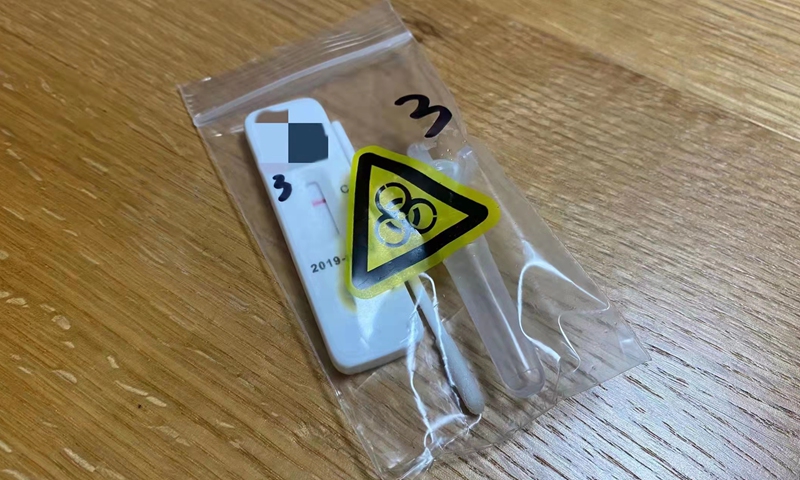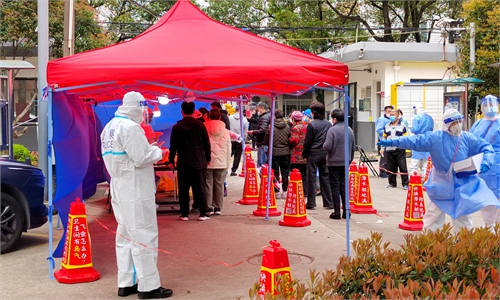More than 14m residents complete ‘rapid, convenient’ antigen self-testing, more to come

A COVID-19 antigen test-kit indicates a negative result on Saturday in Shanghai; the used kit is placed into a special plastic bag. Photo: Courtesy of the interviewee
Shanghai residents continue to take antigen self-tests on Sunday since the city started on Saturday to try out the practice of combining nucleic acid testing and antigen self-testing to improve testing efficiency and detect latent infections in time. More than 14 million residents in the city have completed the "rapid and convenient" test as of Saturday and some showed positive results.
The city reported 45 new confirmed cases and 2,631 asymptomatic cases on Saturday, the local health authority said at the press briefing on Sunday morning. The daily number of new positive cases has remained high for days as the city struggles to contain the outbreak.
The paralleled testing of nucleic acid testing in key areas where there are more confirmed and asymptomatic cases and antigen in non-key areas where there are fewer cases continued to be carried out throughout the city on Sunday.
The definition of key and non-key areas is even detailed to specific buildings. Yi Lin, a local resident from Jing'an district, told the Global Times on Sunday that she and her husband and her elder son took the antigen self-test while her younger son and her parents living in a separate apartment in another building in the same compound took nucleic acid tests since there is a close contact of confirmed patients in their residential building.
In non-key areas, those who take antigen self-tests and get a positive result are required to further take nucleic acid tests and will be quarantined immediately before their results come out. The system shows the fast and easy-to-operate advantage of antigen testing, according to the local health authority.
Tao Lina, a Shanghai-based expert on infectious diseases, told the Global Times on Sunday that the three characteristics of antigen self-tests - swiftness, being able to be easily used by one individual and easy to be operated by both young and senior people - can serve as a new model to fight against the Omicron variant.
Meanwhile, Tao also pointed out that the unstandardized sampling process and reporting system can also lead to the possibility of missed detection.
Tao suggested that the results of the antigen self-test should be uploaded to the nation's unified system like it's done with nucleic acid test results, which are linked to personal information and can be checked through mobile phones. At present, only those who test positive are required to report proactively to their communities.
Meanwhile, some mini apps have been developed by some tech companies for users to upload and record their antigen self-test results. However, the data from these platforms has not been connected to the epidemic prevention and control system platform of each region, according to media reports.

